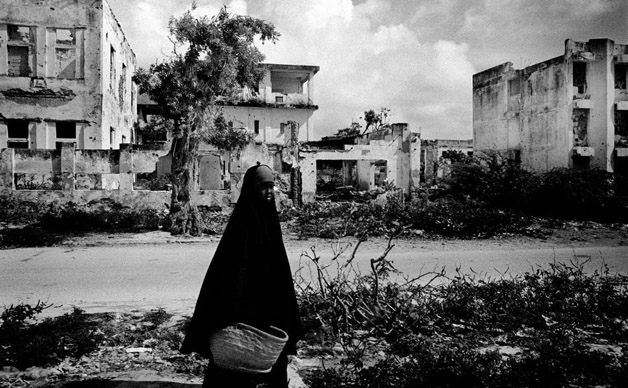
CJA successfully held the former investigations chief of the Somali National Security Service (NSS), Colonel Abdi Aden Magan, liable for the torture and arbitrary detention of our client, Professor Abukar Ahmed, a renowned human rights activist and law professor in Somalia.
On April 21, 2010, CJA filed a civil suit against Colonel Magan, before the U.S. District for the Southern District Court of Ohio, accusing Magan of command responsibility and personal responsibility for torture; cruel, inhuman and degrading treatment; and arbitrary detention. The civil action was brought under the Alien Tort Statute (ATS) and the Torture Victim Protection Act (TVPA), which allow for civil suits in U.S. courts to remedy a limited set of human rights violations. The case was filed jointly by CJA and pro bono partner, Akin Gump Strauss Hauer & Feld, LLP. Latham & Watkins LLP became pro bono co-counsel for Mr. Ahmed in the spring of 2011.
Magan immediately moved to dismiss the claims against him on several grounds, arguing (among other issues) that the common law doctrine of official act immunity bars a court in the United States from hearing claims against him that involve conduct committed while he was acting within his official duties as a colonel in the Somali army. In response, the trial court invited the State Department to provide its opinion on the matter. CJA attorneys met with representatives from the U.S. State Department’s Office of Legal Advisor on January 18, 2011 to explain why Magan was not entitled to common law immunity. Importantly, the U.S. government agreed with our position and filed a Statement of Interest stating that Magan was not entitled to immunity in the case.
Following the Statement of Interest, the U.S. District for the Southern District Court of Ohio moved forward with the case and denied Magan’s motion to dismiss the complaint. In doing so, the court found that our client had timely filed his claims, and that there were no adequate, alternative judicial remedies available besides those offered by our U.S. courts.
In December 2011, Magan’s lawyer filed a motion to withdraw from the case. Magan himself filed a motion requesting to stay the case in order to have time to procure new counsel. In the motion, he alleged that he was in Kenya caring for his ailing mother. The court denied the request, but gave Magan the opportunity to renew the motion if he provides the court with information on his efforts in finding new counsel. Magan did not renew his motion to stay the case with the requested information and has since remained incommunicado with the court and plaintiff’s counsel.
Final Judgment
On April 10, 2012, in defiance of a court order, Magan failed to appear for his deposition. In all, Magan ignored no less than five court orders before the close of discovery. As a result, the court granted the plaintiff’s motion for evidentiary sanctions, deeming a number of key facts to have been conclusively established. Read the order here. We presented our evidence in a case-dispositive motion for summary judgment. On November 20, 2012, the court granted our motion for summary judgment and found Magan culpable for the arbitrary detention, torture, and cruel, inhuman treatment of Professor Ahmed.
On May 30, 2013 in Columbus, Ohio, Professor Ahmed finally shared his story in federal court in a damages hearing before the magistrate judge; it was an all too common story of the lasting impact of persecution and torture under the brutal Siad Barre dictatorship that once ruled Somalia. The judge ruled that Magan’s conduct “was brutal and egregious” and awarded Professor Ahmed $5,000,000 in compensatory damages and $10,000,000 in punitive damages “to deter others from committing such acts and to provide redress.” The court also held that because the defendant was a permanent resident of the United States, the presumption against extraterritoriality set forth in Kiobel v. Royal Dutch Petroleum Co. was overcome as to the plaintiff’s claims under the ATS.
Read more about the Kiobel ruling and the presumption against extraterritoriality here.
Final judgment was entered on October 2, 2013. On October 11, 2013, Professor Ahmed was presented with the prestigious 2013 International Bar Association Human Rights Award at a conference in Boston for his courageous work representing victims of human rights abuses and seeking justice against individuals responsible for human rights abuses in Somalia.
